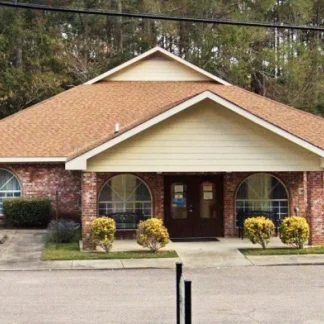Pine Belt Mental Healthcare Resources
Richton, Mississippi, 91180 Highway 42, 39476
Available Programs
- Adolescence program
- Adult program
- Children program
- Elderly program
- Hearing impaired program
- Program for men
- Program for women
- Young adult program
Insurance and Financial
- Medicaid
- Private insurance
- Self-pay options
- Sliding scale payment assistance
- Medicare
- Financial aid
About this Facility
Pine Belt Mental Healthcare Resources - Highway 42 offers outpatient treatment for individuals with alcohol and/or substance addiction. The program includes psychiatric serviced, assessment, group therapy, individual counseling and more. Pine Belt Mental Healthcare Resources - Highway 42 is located at Waynesboro, Mississippi.
For more than 30 years, Pine Belt Mental Healthcare Resources – Highway 42 has served individuals throughout the Pine Belt. The past has brought on many seasons of change, but the one thing that remains the same is their commitment to excellence and service.
Through an extensive continuum of care, they strive to enable adults with serious mental illnesses, children with serious emotional disturbances and individuals with an addiction or developmental disability to live, work, learn and participate fully in their communities.
Contact us for more information: (601) 788-6308

Contact Pine Belt Mental Healthcare Resources
Connect with Pine Belt Mental Healthcare Resources by calling their admissions team directly.
(601) 788-6308 Website Get Directions